'Bankrupt' Birmingham City Council approves finance plan
- Published
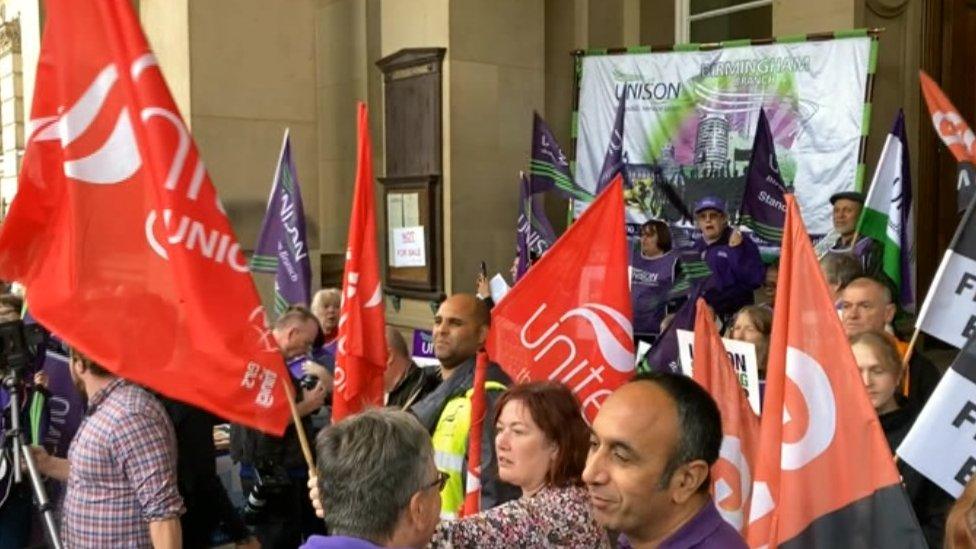
Union members staged a protest outside the city council house on Monday evening
The leader of Birmingham City Council has said it is faced with "stark choices" as councillors approved a financial recovery plan.
The authority declared itself essentially bankrupt earlier this month in part over a £760m equal pay bill.
During Monday's four-hour, often fractious meeting, councillors took turns to question how Europe's largest authority reached this position.
In the end they voted to approve four recommendations.
They included accepting the Section 114 notice, essentially acknowledging the council's spending commitments exceed its revenue; agreeing spending control measures until it has passed a new budget; endorsing activity to address its financial pressures; and to receive a further report and emergency budget next month.
The decision came less than a week after the government announced it would send in commissioners to help run the local authority due to its financial crisis.

The council is facing a £760m bill to settle equal pay claims
Birmingham City Council is facing a budget shortfall of £87m and, as well as equal pay, has blamed the introduction of a new IT system, which has seen expected costs spiral from £19m to £100m.
Representatives from unions held a rally outside the meeting to show support for workers, amid fears of jobs cuts to come.
Inside the council house, chief finance officer Fiona Greenway gave members an outline of the position, telling them they were "facing an unprecedented financial challenge".
In a report on the recovery plan, presented to the meeting, it said "work to address the situation must be urgent, will involve hard choices about what we deliver and how we operate, and will result in a smaller organisation".
But, it said, further decisions would be required as the detail was developed - with a subsequent report and revised emergency budget for the year to be presented at another extraordinary general meeting in late October.

Council leader John Cotton said he welcomed news of an inquiry to understand how the financial crisis had occurred
Council Leader John Cotton apologised to residents and staff that it was faced with "such stark choices".
The local authority must act "decisively", he said, to close off its equal pay issues "once and for all" - and added that the council was also affected by cuts in funding from central government.
He said the decisions facing the council were not ones "anyone of us ever wanted to make".
Mr Cotton added that he did not "underestimate" the scale of the challenges ahead but was "committed to seeing this through".
However, responding to him, Conservative councillor Matt Bennett said the impact of the crisis would be devastating and described the vote as being only "a plan to have a plan".
Mr Bennett said: "When I heard the response from the leader today one word does stick in my mind and that word is implausible."
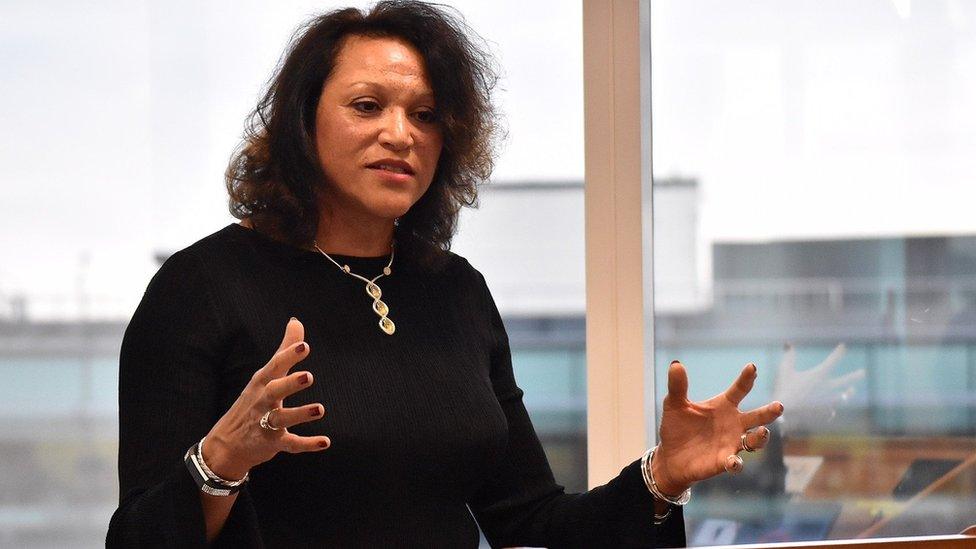
Council Chief Executive Deborah Cadman said work to implement the plan was "urgent"
Council Chief Executive Deborah Cadman told the meeting, however, the financial plan would help restore "certainty and confidence" in the ability of the authority to deal with its issues.
"Our work to implement the recovery plan is urgent," she said. "It will almost certainly result in a different organisation."
'Four horsemen of the apocalypse'
But, she said, it also offered the council the opportunity to improve its performance.
Liberal Democrat councillor Paul Tilsley said councillors were "facing probably the worst crisis" in the local authority's history.
"We have got the four horsemen of the apocalypse and I would identify them as the sale of assets, reduced staff, reduced services and increased council tax to pay for it," he said.

Councillor Robert Alden said it was a "sad day" for the city
Councillor Robert Alden, leader of the Conservative opposition group, said there had been a "shameful amount of inaction" by the leadership over the summer to deal with its financial problems - and criticised how Labour had historically dealt with the issue of equal pay.
The roots of equal pay claims date back to a Supreme Court ruling in 2012 that found hundreds of mostly female employees had missed out on bonuses given to staff in traditionally male-dominated roles such as refuse collectors and street cleaners.
Despite the current position, Mr Alden insisted this was a council issue and the city of Birmingham itself had a "bright future" and would rise "like a phoenix" from the challenges.

Analysis - Rob Mayor, Birmingham political reporter
There were noisy protests outside tonight's extraordinary general meeting of Birmingham City Council.
Many of those making their voices heard, are concerned about jobs and services, which may face cuts as the authority tries to balance the books.
There was anger about what are likely to be tough times ahead for the city and worry about the imminent arrival of commissioners.
Anger as well on behalf of the women who've spent years being paid less than men in equivalent roles, the very reason the council finds itself in such financial difficulty.

Mr Cotton said he welcomed the secretary of state's announcement of an inquiry to understand how the council found itself in financial crisis.
Towards the end of the four-hour meeting, Councillor Sharon Thompson, deputy leader of the council, said she had apologised to staff on a recent webinar for the uncertainty they were facing.
"We can be a better council if we take the opportunity to reset and refocus," she said.

Follow BBC West Midlands on Facebook, external, Twitter, external and Instagram, external. Send your story ideas to: newsonline.westmidlands@bbc.co.uk, external
Related topics
- Published25 September 2023
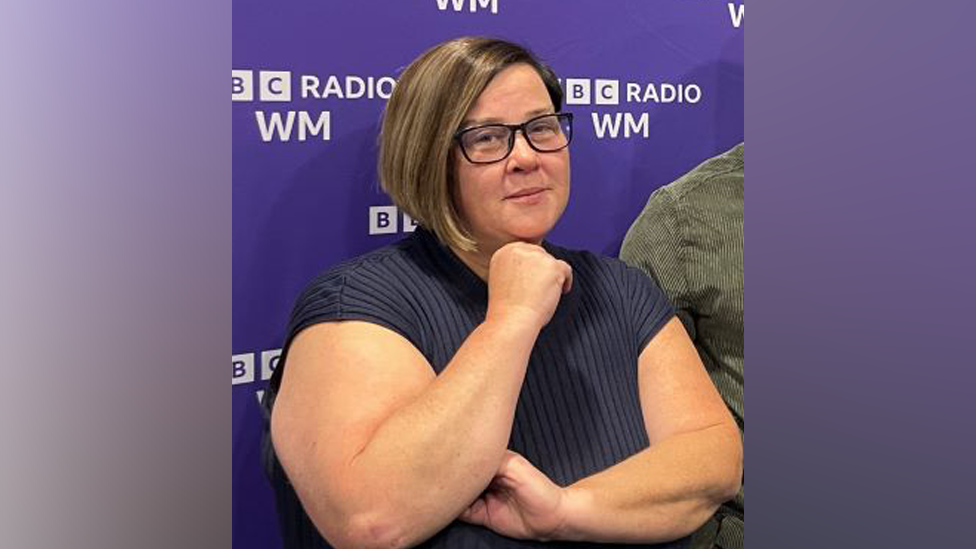
- Published24 September 2023
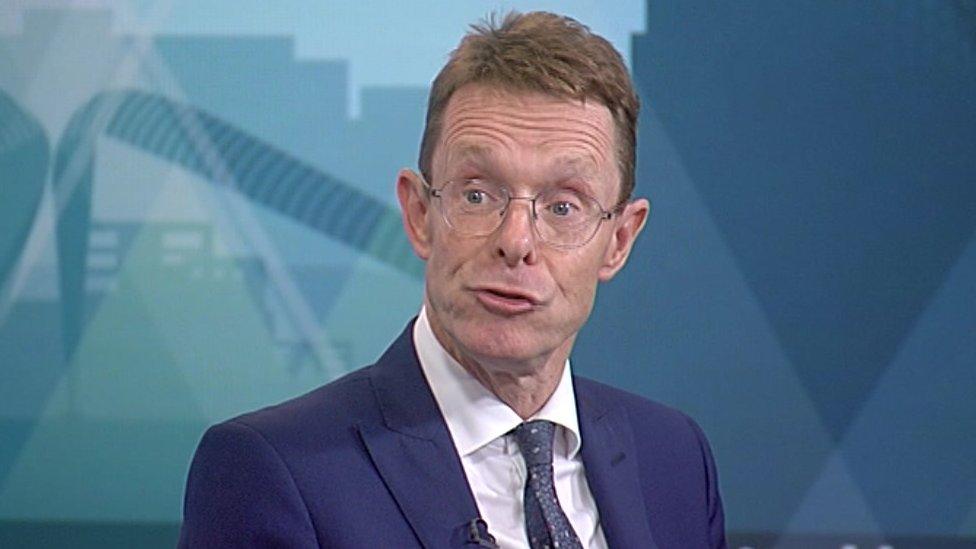
- Published21 September 2023
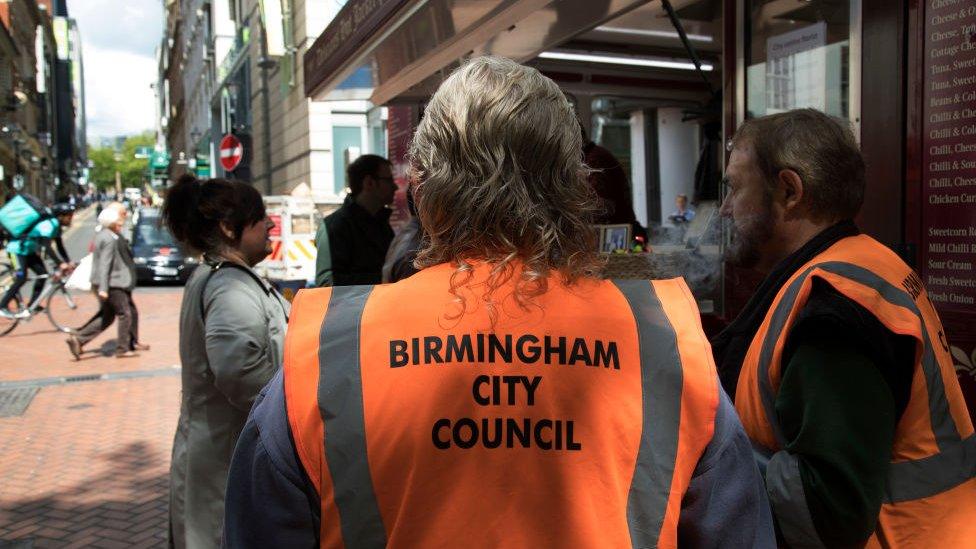
- Published20 September 2023

- Published19 September 2023
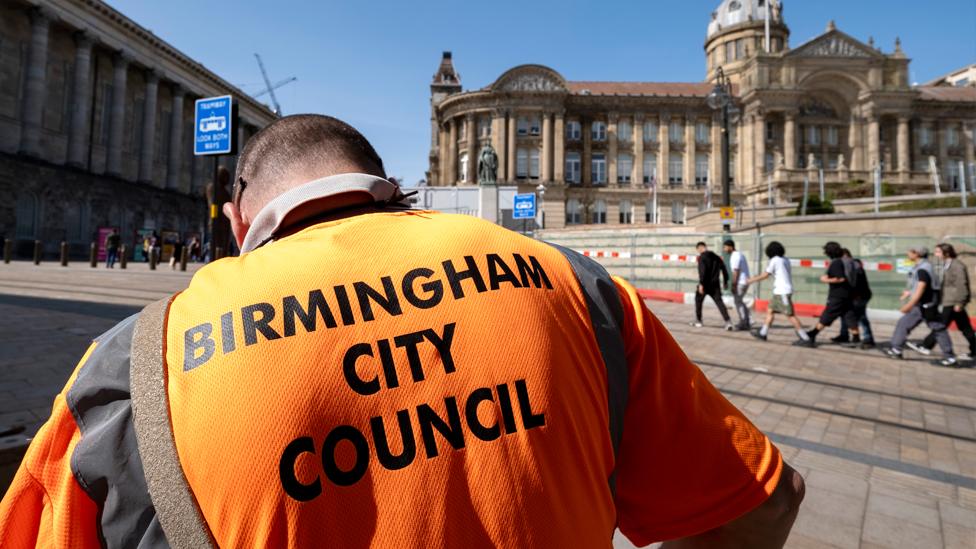
- Published19 September 2023
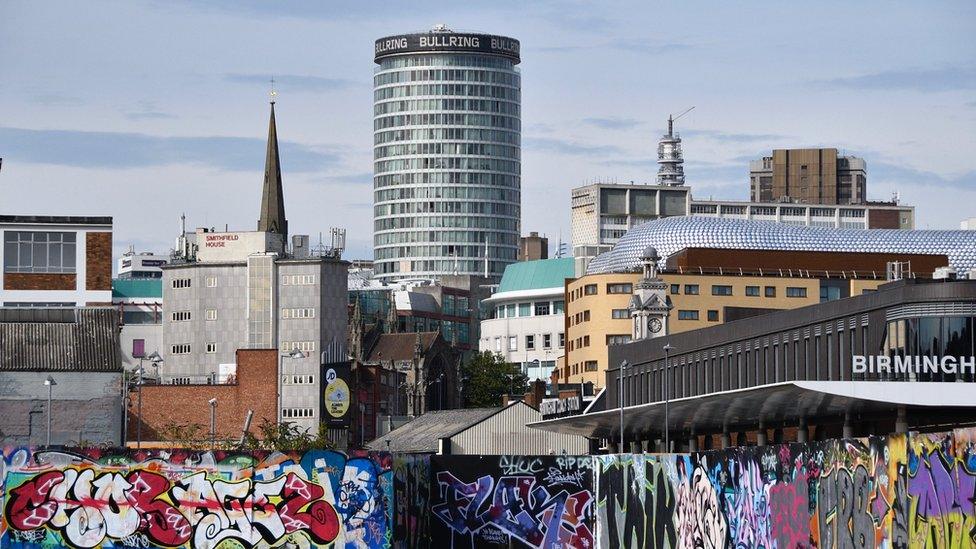
- Published17 September 2023

- Published15 September 2023
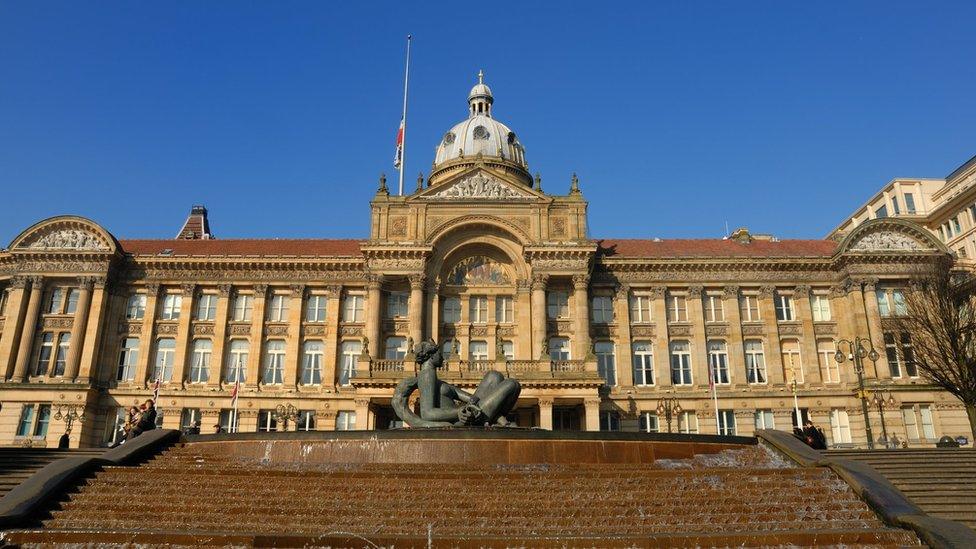
- Published8 September 2023

- Published6 September 2023
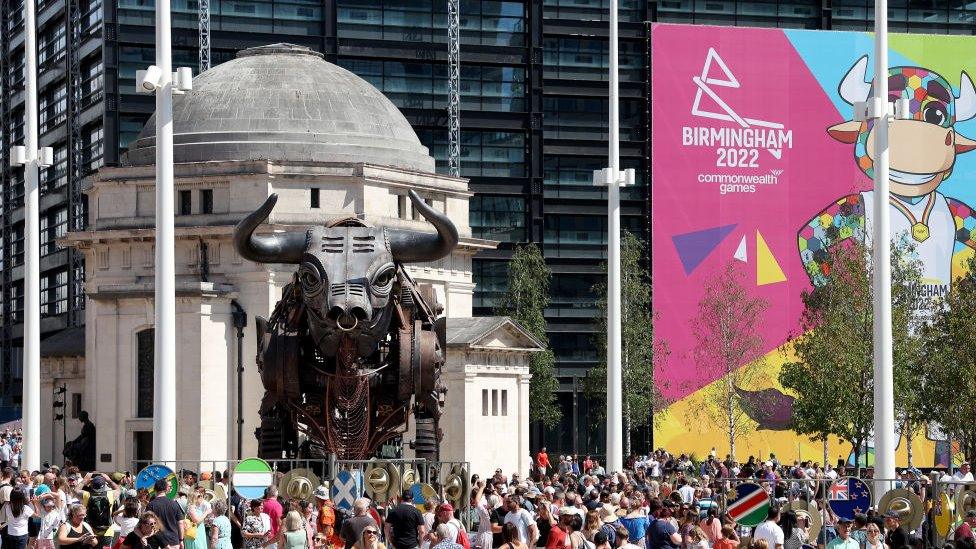
- Published5 September 2023

- Published20 June 2023
